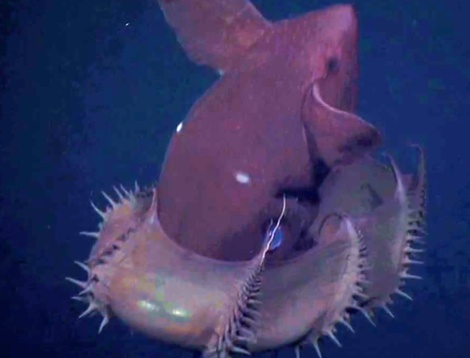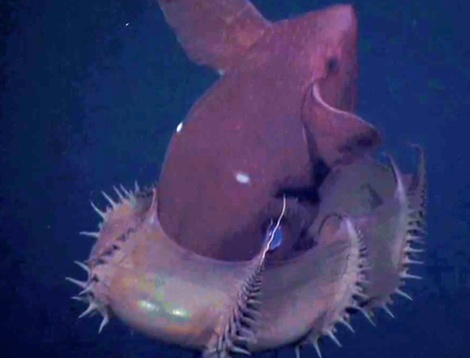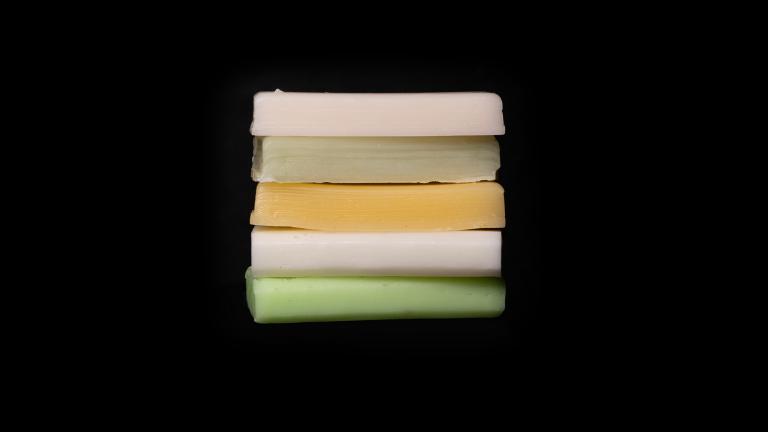
It’s not for nothing that this thing is called a “vampire squid” — whoever named it clearly just went with the most terrifying creature known to science at the time.
Here is a video of it being scary as hell:
(If you’re easily frightened you may want to opt for this video, which isn’t as clear but does have David Attenborough’s soothing tones.)
But scientists have just determined that the vampire squid (its full name is Vampyroteuthis infernalis, or vampire squid FROM HELL) is actually the only cephalopod that doesn’t want to eat you. Unlike most squid and octopus, V. infernalis isn’t a predatory carnivore — it only eats trash.
Unfortunately, this doesn’t mean it can do anything about the Pacific Garbage Patch — in fact, Vampyroteuthis is really vulnerable to human BS like climate change and all the crap we throw in the oceans. Instead, it lives on organic ocean waste, like fish scales, crustacean exoskeletons, plankton poop, jellyfish chunks, and “the discarded mucus houses of larvaceans.” Damn, the ocean is a dirty place, even without our help! Good news for the vampire squid, bad news for anyone who wanted to go swimming at the beach without thinking about “mucus houses.”
If you think what it eats is gross, you should hear how it eats it:
“The vampire squid deploys a long filament — up to 8 times the animal’s body size, and marine detrital matter falling through the water column adheres to the filament,” [scientist Henk-Jan] Hoving explained to Discovery News. “The filament is retrieved between the arms of the vampire squid and the food is cleaned off.”
“The suckers in vampire squid do not seem to have the sucking capacity as found in other cephalopods,” he continued. “The suckers on the distal parts of the arms release mucus and they probably wrap the collected food in mucus, forming a food bolus, which is transported via fingerlike projections on the inside of the web to the mouth. Then the food bolus is ingested by the beak.”
Vampire squid: 100 percent not invited to dinner at my house.
The discovery that the V. infernalis lives on poop and trash clears up a marine biological mystery: Why do they have two mysterious filaments (long thin appendages), but no feeding tentacles? Now we know that the filaments catch bits of ocean gunk for the vampire squid to eat later. So basically, it’s like a very dirty beard. Hmm … looks freaky, not dangerous, lives for trash, saves food in its beard to eat later. Maybe we should rename them Anne Rice Fan Squid.




